When your baby is around 26 weeks old they’re ready for first foods. Some babies take a few weeks more – check out our guide to the signs they are ready to find out more.
We know what you’re thinking – are there special foods to try and special equipment to buy? Don’t worry, it’s much easier than you think. From around 6 months a baby can start with mashed or soft finger food, like pieces of egg, unsalted peanut butter on toast, broccoli or pieces of peach. You don’t have to buy any special foods or equipment!
When, where and how?
Choose a time of day when you’re both relaxed. There is no right way, just whatever suits you and your baby. After a couple of weeks you’ll find a pattern that suits you both. But first things first, you’ll need a bib, soft spoon and a bowl (these do not need to be sterilised if your baby is over 6 months old). Your baby may prefer to pick up finger foods directly from a clean table top or tray. Have a look at our page on first food recipes for some great first menu ideas.
It's very important to reduce distractions such as television and video. Being part of family mealtimes around a table is part of very important learning for a baby and really helps them to learn to talk and become sociable.
Expect a mess
Try not to worry too much about mess. Your baby may gag or spit food out the first couple of times – this is normal, you may need to offer food many times before they like it. Don’t force it, just wait and try another day. Be patient and let them go at their own pace. Remember, if you’re calm your baby is more likely to relax.
How often and how much?
- Be guided by your baby’s appetite – they may want a few teaspoons of well-mashed food or a few pieces of soft finger food. Let them feed themselves using their fingers as soon as they show interest and offer them a range of foods and textures, particularly vegetables and fruit.
- Try offering a piece of egg or unsalted peanut butter on toast as some of their first foods. This can help to prevent allergies. However, if your child already has a known allergy, such as diagnosed eczema, a food allergy, or family history of allergies, you should talk to your GP, health visitor or medical allergy specialist before you give your baby eggs, peanuts or foods containing peanuts for the first time. If you’re introducing nuts, peanuts or seeds from 6 months, they should be in paste form or very finely chopped to avoid choking.
- Do not add sugar or salt to your baby’s food. Salt can overload a young baby’s kidneys and sugar can harm your baby’s teeth.
- If your baby is sharing family foods, eating together will encourage them to enjoy food with you.
- Your baby should always be watched by an adult while eating in case they choke.
- Don’t offer foods over prolonged periods of much more than 20 minutes.
Spitting and refusing
Trying solid food for the first time is a completely new experience for your baby. They have to learn to move the food around their mouth, chew and swallow it. That’s why some babies react by spitting their first mouthfuls of food straight back out again! Don’t panic, just keep trying gently every few days until they get the hang of it. And they’ll need to try different flavours and textures quite a few times before they get used to them.
Your baby's appetite
Healthy babies know their own appetite, so just a few teaspoons of food may be enough to begin with. But should you be worried or concerned about what and how much they’re eating, contact your health visitor. Remember that most of the baby’s nutrition still comes from milk feeds until after about 9 months.
Tips from parents
"Shower curtain under high chair!!! Catches food baby drops and it wipes clean in seconds... And make sure they are not near any type of curtain for grabbing distance."
"My daughter refused everything I offered and my son gives most things a go. Winner with both was always avocado and banana!"
 Activities & Play
Activities & Play Behaviour
Behaviour Childcare
Childcare Development & Growing Up
Development & Growing Up Family, Friends & Relationships
Family, Friends & Relationships Feeding Your Baby
Feeding Your Baby Food & Eating
Food & Eating Health & Safety
Health & Safety Mental Health & Wellbeing
Mental Health & Wellbeing Money & Work
Money & Work Online Behaviour & Safety
Online Behaviour & Safety Pregnancy & First Days
Pregnancy & First Days School & Education
School & Education Sleep
Sleep

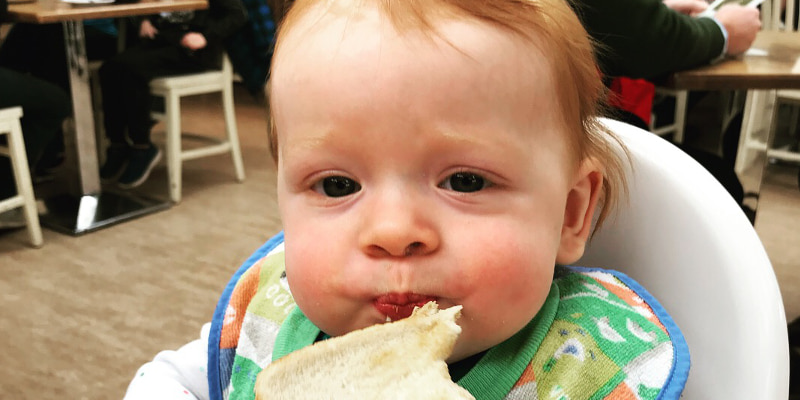

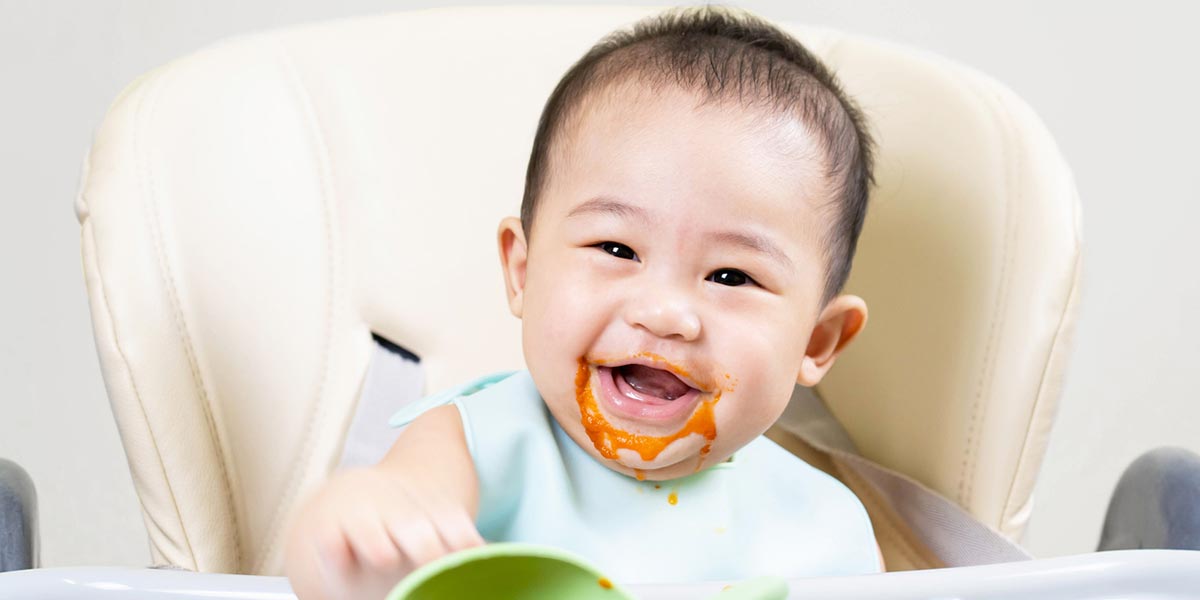
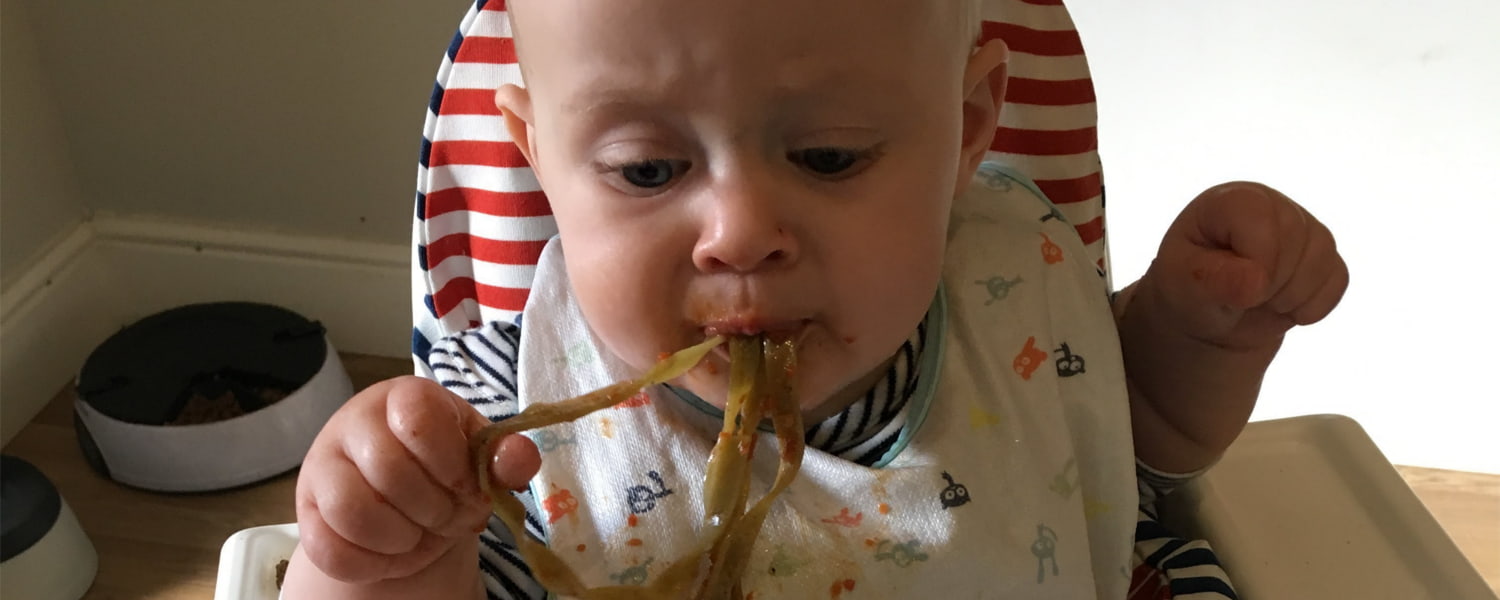
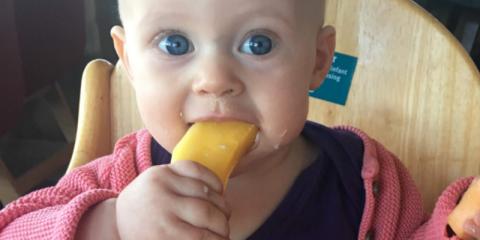
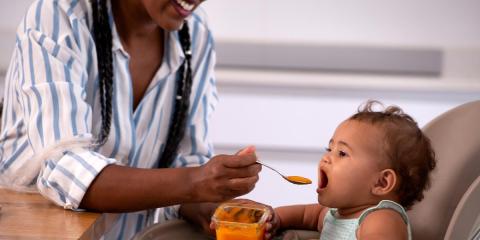


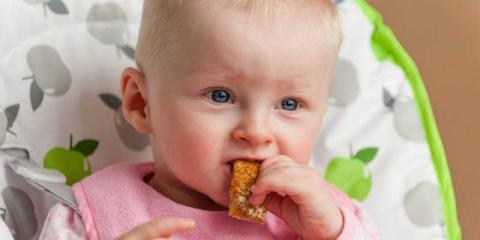
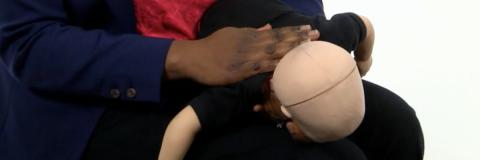
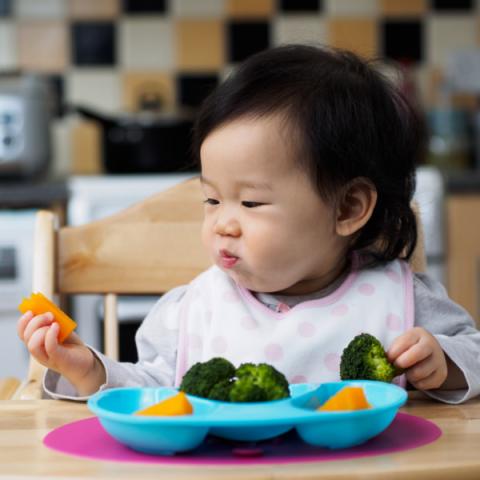
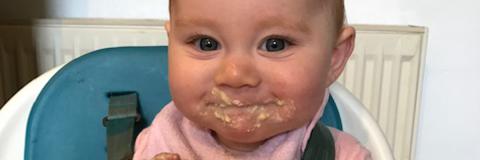

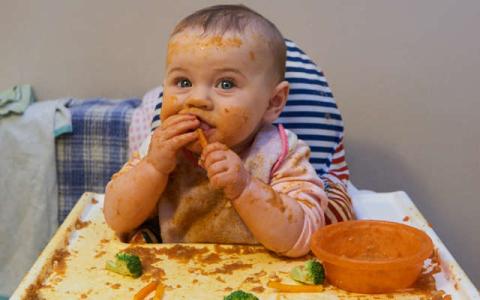

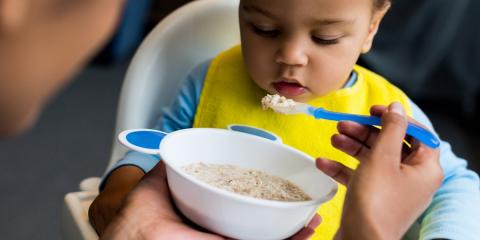
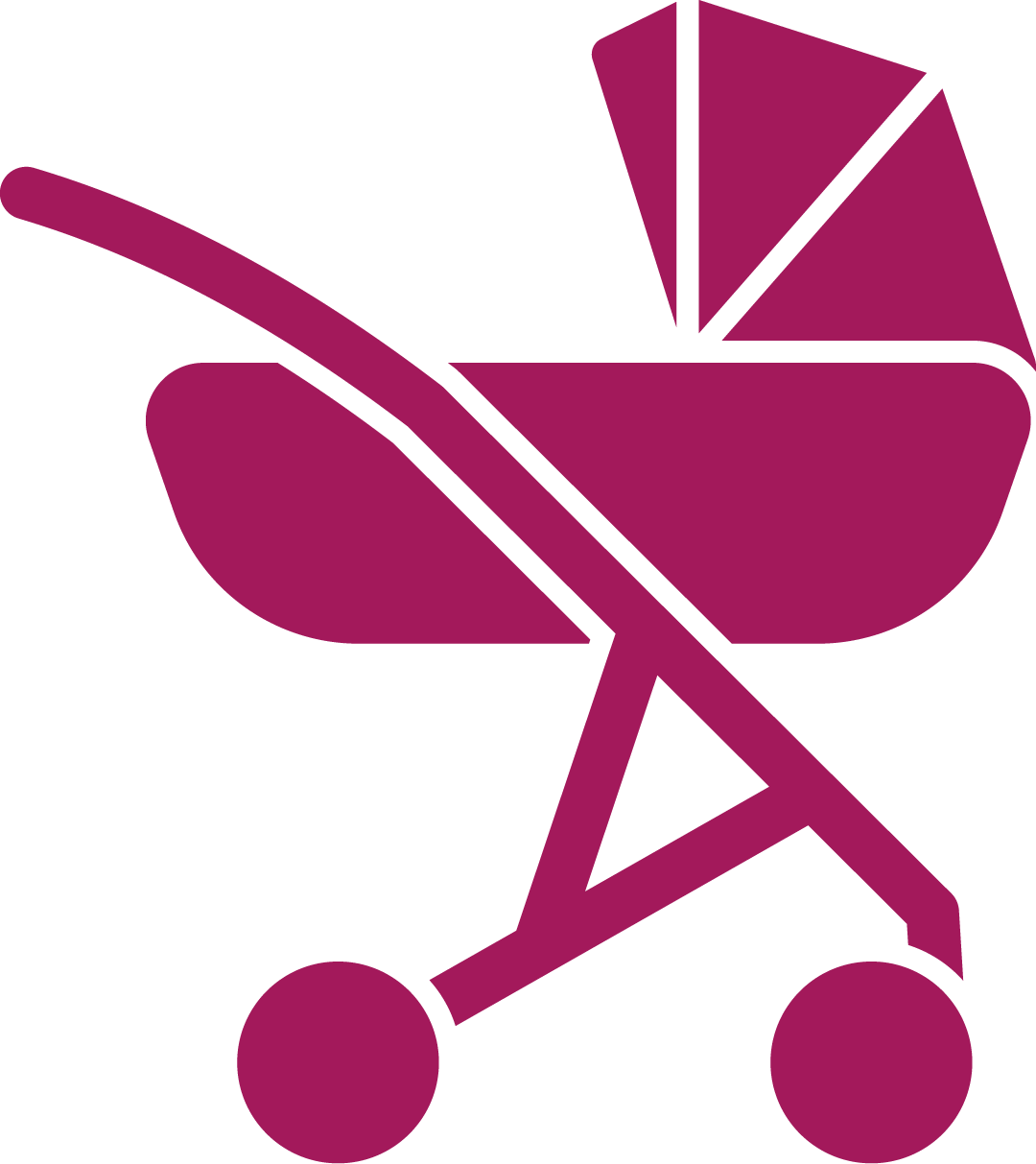 Pregnancy & First Days
Pregnancy & First Days
 Sleep
Sleep